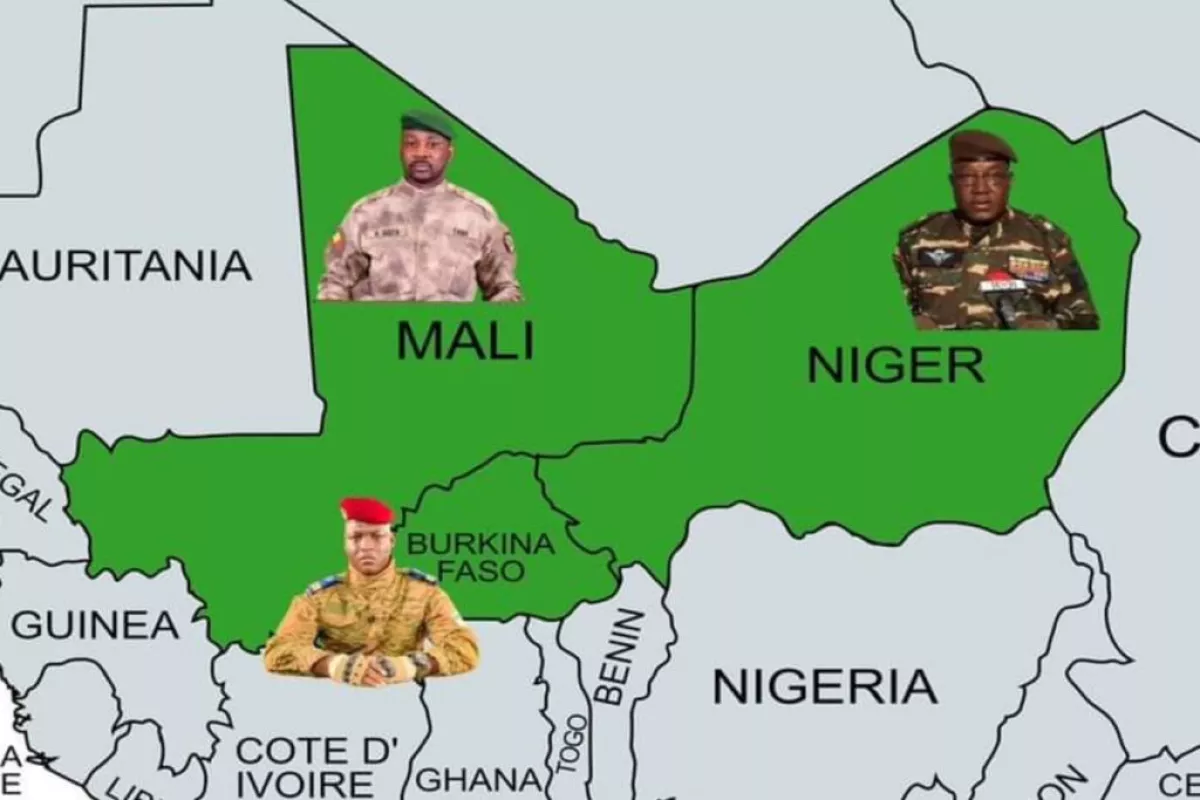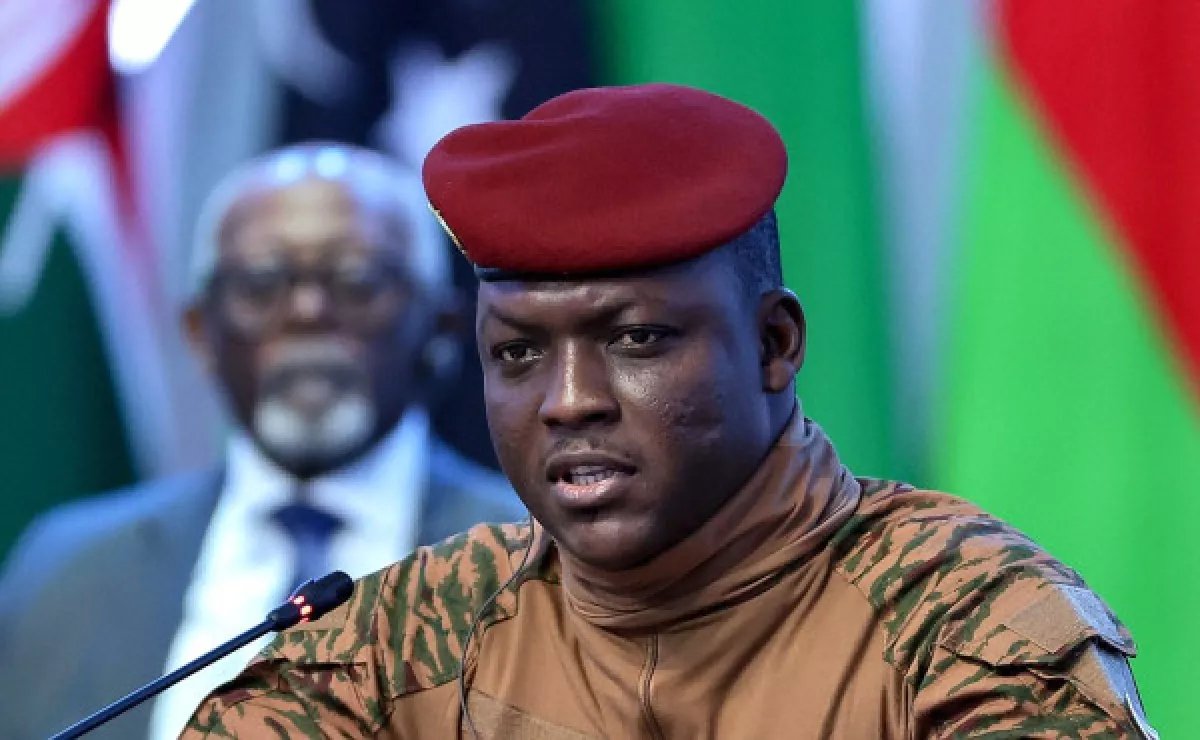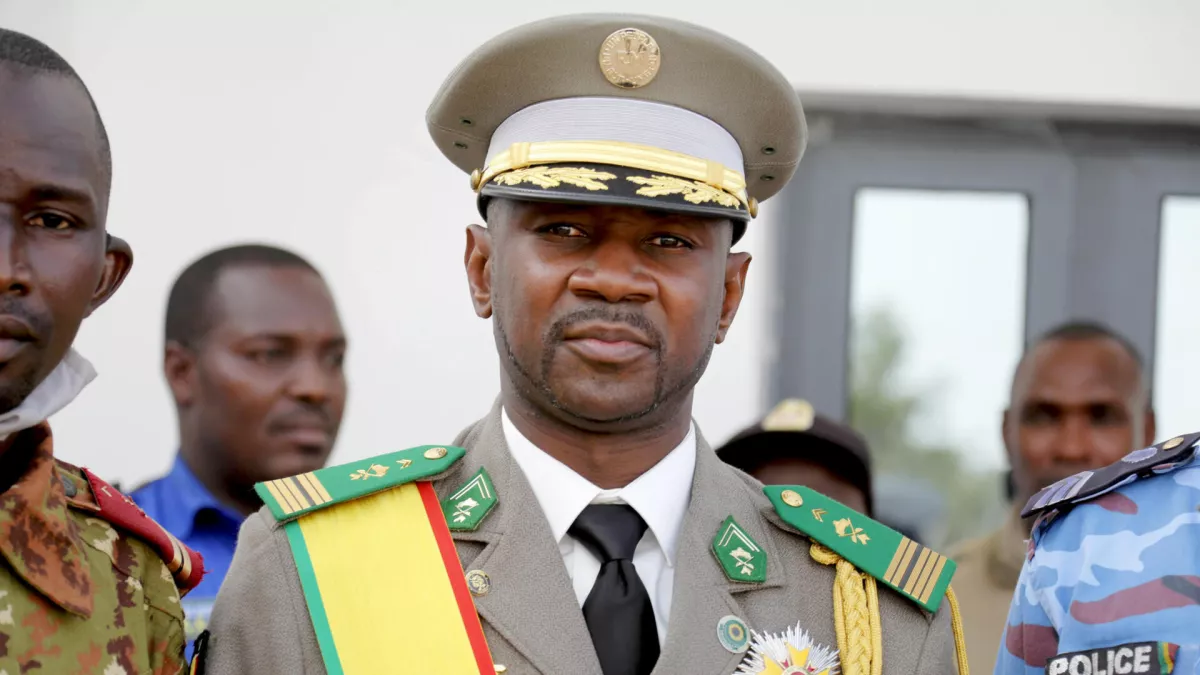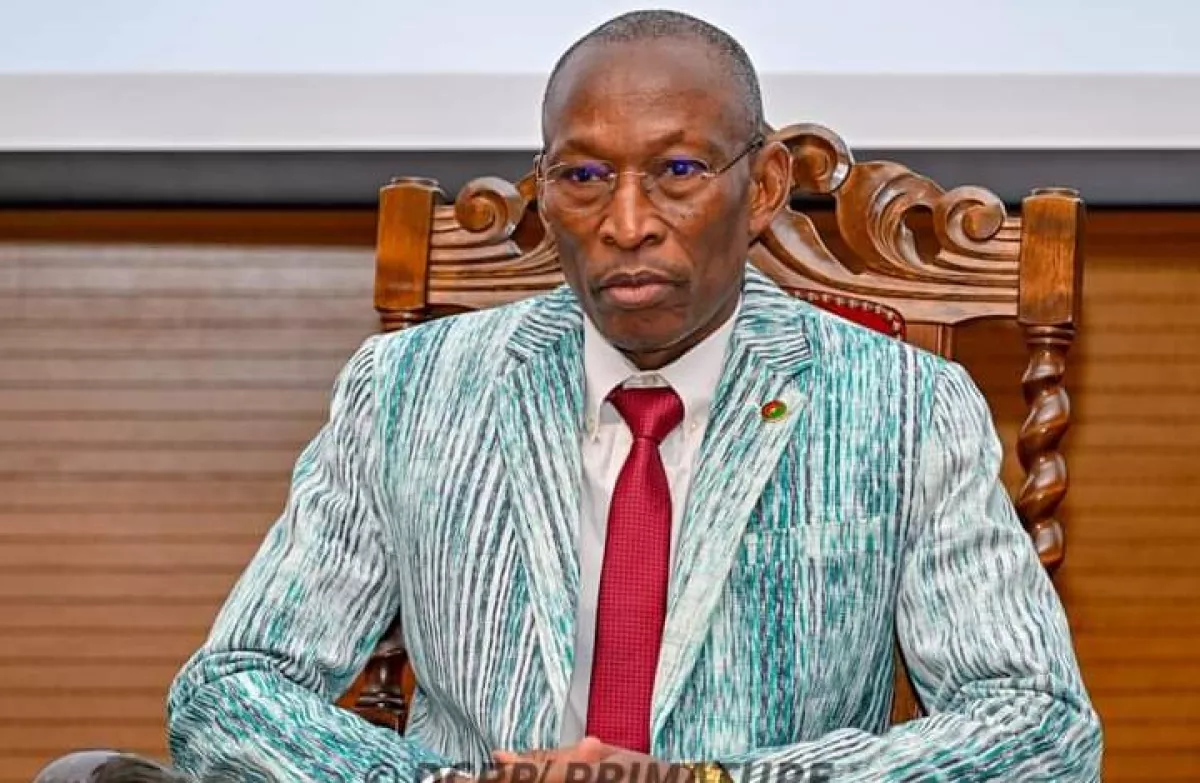The sovereign path of the Sahel Without francs or the French
On July 6, 2024, the Confederation of Burkina Faso, Mali, and Niger was officially established, marking the next stage of integration among these West African nations that have decisively broken with their colonial legacy. What are the first results?
An alliance of the free
The creation of the Confederation represents a further development of the Alliance of Sahel States (AES), which was founded in September 2023 by the three countries, all currently governed by transitional military administrations. The former French colonies’ determination to finally cast off the shackles of dependency provoked sharp irritation in their former metropole. Meanwhile, neighbouring countries aligned with France through the ECOWAS bloc imposed economic sanctions and threatened the transitional governments with military intervention.

At the same time, the internal situation in the countries that dared to challenge neocolonialism remained extremely difficult. After years of exploitation, these states found themselves among the poorest on the continent. Their natural resources had long been extracted by foreign companies at artificially low prices. In addition to their fragile, primarily agricultural economies, they inherited systemic corruption and a wide range of social issues.
An added threat came from armed extremist groups. These not only terrorised civilians and attacked security forces, but — with support from external actors — effectively occupied entire border regions.
In an effort to confront these challenges and pursue a shared future, Burkina Faso, Mali, and Niger chose to unite their efforts. Their first experience of cooperation proved successful, and less than a year later, they decided to deepen their integration by forming the Confederation of Sahel States.
To date, the Confederation has demonstrated successful examples of coordination. It is governed through a Council of Heads of State, the first session of which took place in July 2024 in Niamey, the capital of Niger. The key figures of this integration process are General Abdourahamane Tiani (Niger), General Assimi Goïta (Mali), and Captain Ibrahim Traoré (Burkina Faso).
A united front
What results has the new Sahel integration achieved? Two key areas — security and the economy — have become the Confederation’s top priorities. Problems in these spheres had accumulated over decades, but it was the fight against terrorism that became the catalyst for closer cooperation among the region’s states. Previously, militants operating in border areas could move freely between countries, evading pursuit. Today, however, thanks to joint operations, coordinated intelligence, and information sharing, terrorist groups are suffering significant losses.

In response to the growing activity of extremist groups, the Confederation’s armed forces carried out a series of operations — Vereco 1 and Vereco 2. In April 2025, Captain Ibrahim Traoré convened a meeting with the security agencies of the AES, while in Bamako, the air force commanders of the three countries held talks on integrating their air defence systems.
Niger’s Defence and Security Forces (FDS) successfully conducted a series of operations in April: 13 militants were eliminated and an IED production facility was destroyed in Goundi. In June, an artillery strike on militant camps in the western part of the country killed around 30 terrorists. On 1 July, intelligence efforts led to a special operation that eliminated one of the jihadist leaders — Lukumane. Arms depots and recruitment centres were also uncovered on the border with Mali.
However, the enemy remains strong. On 1 July, the al-Qaeda-affiliated group JNIM launched coordinated attacks along seven sections of the front line, spanning 500 km. In the Niono area alone, up to 100 militants were involved. The Malian Armed Forces (FAMa) repelled all attacks, neutralising more than 80 militants and capturing the cell leader in Tessit — Avraham Boubacar, also known as "Oubel".
On 7 July, Niger’s army successfully repelled an assault in Tillabéri: 41 terrorists were killed while attempting to break through to civilian targets. Local media highlighted that “the FDS is increasingly seen as the people’s army — close to the population and devoted to its protection.”
According to local reports, “the unified counteroffensives of the AES (Alliance of Sahel States) forces continue to intensify, striking decisive blows against terrorist elements.”
In Burkina Faso, strategic offensives are being carried out with the use of aviation, drones, and advanced targeting technologies employed by specially trained GATA units, with support from instructors of friendly nations.
During a meeting of the Joint Chiefs of Staff Committee in Ouagadougou, the formation of the AES Unified Force was discussed — a joint force of 5,000 troops equipped with the necessary military hardware. Achieving full military sovereignty remains a top priority. Instead of continued reliance on French military presence, defence cooperation is now expanding with countries such as Türkiye, Russia, and China.
Captain Traoré has proclaimed a “progressive revolution” in Burkina Faso — a political course aimed at ending foreign interference, achieving social justice, and ensuring effective governance. According to him, “the inherited Greco-Roman democratic models, often imposed by the West, have failed Burkina Faso in its most critical hour.” A country facing terrorist attacks, he argued, requires “a shift from partisan rivalry to collective action, where policies serve the people.”
The economy of sovereignty
The Confederation is also actively developing its economic agenda. Efforts are underway to boost internal trade, achieve food self-sufficiency, and build key infrastructure — including dams, roads, and transport corridors. Under ECOWAS sanctions, the member states are seeking new partners in Asia and the Middle East.
On 10 April, AES ministers of industry and trade met to discuss the implementation of a unified economic strategy — including the harmonisation of trade regulations, a single investment code, and the creation of a development fund for critical infrastructure. The new patriotic industrial policy aims to reduce dependence on foreign supply chains.
Captain Traoré also proposed the establishment of an AES Procurement Centre — a mechanism of collective economic protection and a tool to promote sovereign development.

In June, Malian President Assimi Goïta held a meeting in Bamako with finance ministers, where a key outcome was the decision to establish the Confederation Bank for Investment and Development (BCID-AES), with an initial capital of 500 billion CFA francs. The new bank will finance joint infrastructure projects and is viewed as a strategic step toward economic sovereignty.
Discussions are also underway on introducing a new currency — the “Sahel” — to replace the colonial-era CFA franc. Countries such as Türkiye, Iran, and others with experience in de-dollarisation and sovereign reserve management have offered assistance in this process.
The Liptako-Gourma Authority, a regional body for the management of natural resources, is being revitalised.
A unified confederate customs system is being created to replace the previously imposed model developed by foreign powers. Under the new structure, import duties on goods from outside the AES will be shared among the finance ministries of the member states.
In Niger, a domestic gold refinery is under construction, and tax exemptions for foreign companies are being revoked. In Burkina Faso, the agenda includes the development of national industry, tighter control over the mining sector, and support for agricultural producers. In Mali, joint ventures with British investors are under way to develop the Bougouni lithium deposit, with 35% of shares held by Malian stakeholders.
The emerging economy of the Confederation represents a path toward sovereign and equitable development in the interest of the people.
Resilience and survival — In all conditions
Integration is also advancing in the social sphere. In early July, the first AES Games concluded in Bamako, featuring nine sports. Mali led in karate and youth football, while Burkina Faso excelled in athletics. Local media remarked that the event “strengthened the brotherhood of the Sahel, fostered patriotic spirit, and revealed new talent.”

Youth engagement is receiving special attention. In May, Burkina Faso’s Prime Minister Apollinaire Joachim Kyélem de Tambèla met with the youth ministers of Mali and Niger. The participants emphasised that youth are the driving force of the progressive revolution, and that patriotic education is the foundation of genuine sovereignty.
The progress of the Confederation will be reviewed at the second session of the Council of Heads of State, scheduled for December 2025 in Bamako. One of the likely topics will be a new model of engagement with ECOWAS. Despite having exited the pro-French bloc, Burkina Faso, Mali, and Niger do not rule out friendly relations with their neighbours and are working on frameworks for mutually beneficial cooperation.
The consolidation of progressive regimes in West Africa — united in their struggle for independence and justice — continues to gain momentum. And the example of the Sahel, once seen as a remote periphery of the continent, may well serve as an inspiration to others.
The emblem of the Confederation features the baobab — more than just a mighty tree, it is a symbol of life, resilience, longevity, and fearlessness. It embodies a spirit that can endure and grow — against all odds…








